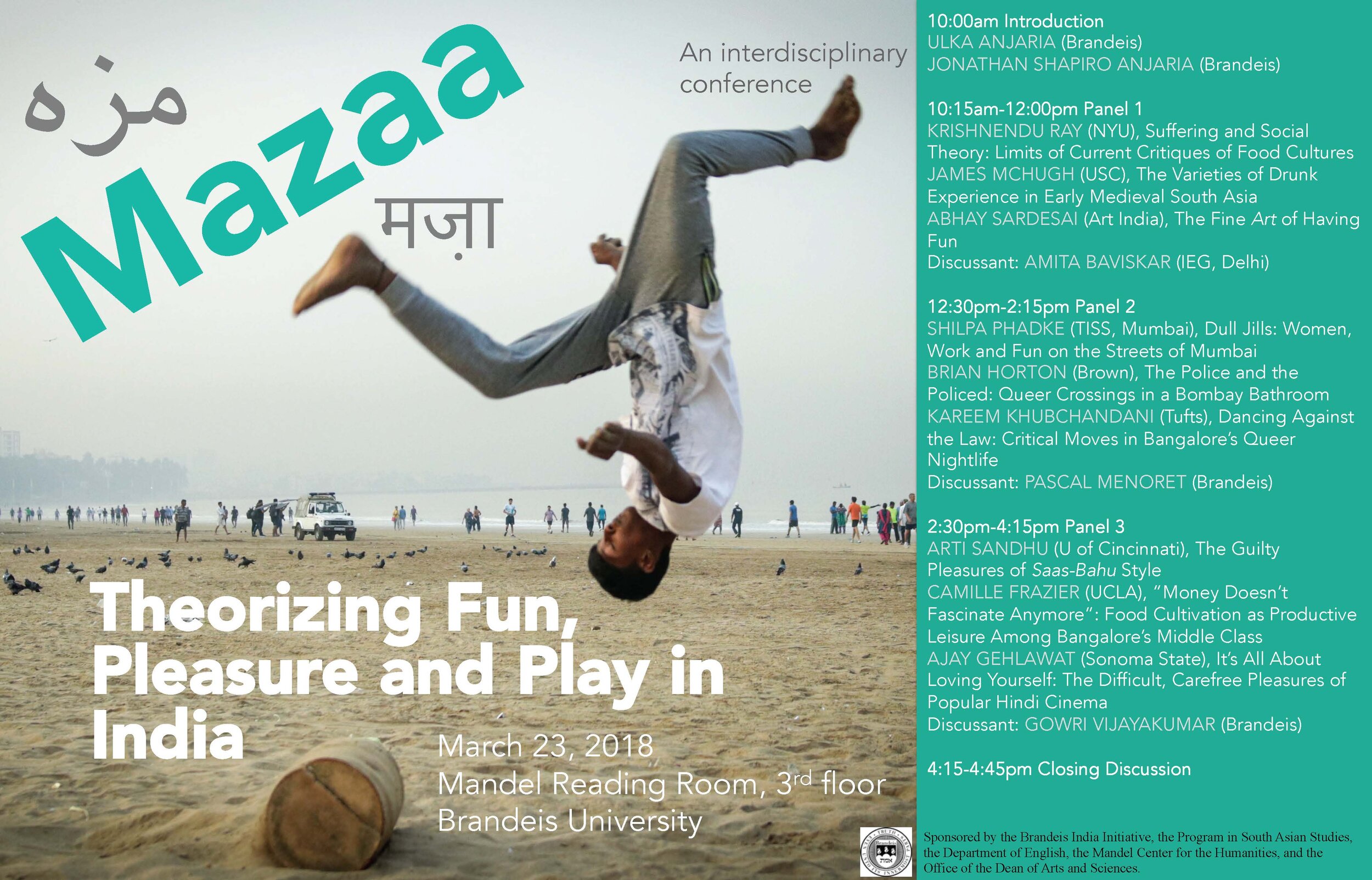Can researchers study fun and pleasure?
This collaborative project started with a conference organized with Ulka Anjaria at Brandeis in March, 2018 called Mazaa: Rethinking, Fun, pleasure and play in India. We edited a collection of essays published in 2020 which brought together writings on topics including food, sexuality, gender and public space, fashion and sports.
Scholarly writing often treats fun and pleasure as either frivolous, and therefore irrelevant, or as symbols of a more important social phenomenon. At times, this is motivated by political critique; researchers often believe that entertainment necessarily supports the status quo. At other times, researchers avoid mazaa because we are skeptical of things that have an embodied pull on us. Indeed, mazaa is sensuous; it draws us in with its viscerality. Rather than see these qualities as obstacles, we argue that mazaa’s embodied, unwieldly and seductive properties can generate new ways of knowing, analyzing, critiquing and writing. Dwelling in mazaa does not mean ignoring inequalities, violence or power, but finding new ways of writing about the forms of life that thrive even in times of crisis. It also means illuminating how pleasure can generate new communities and political possibilities as well as new understandings of the role of the critic in social analysis.

